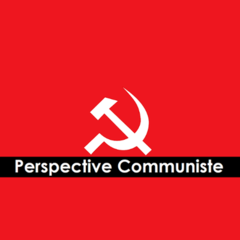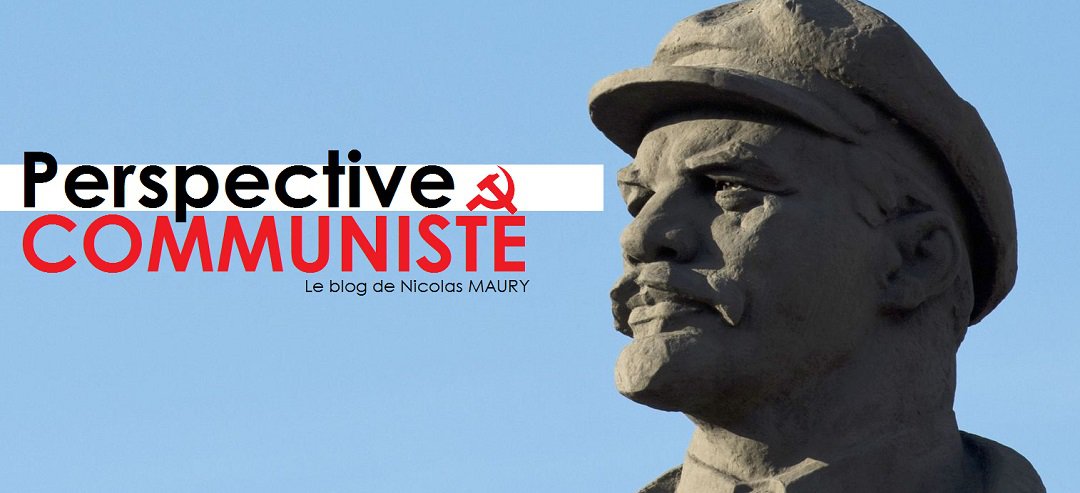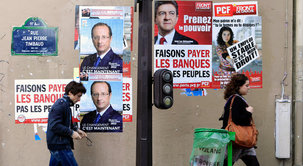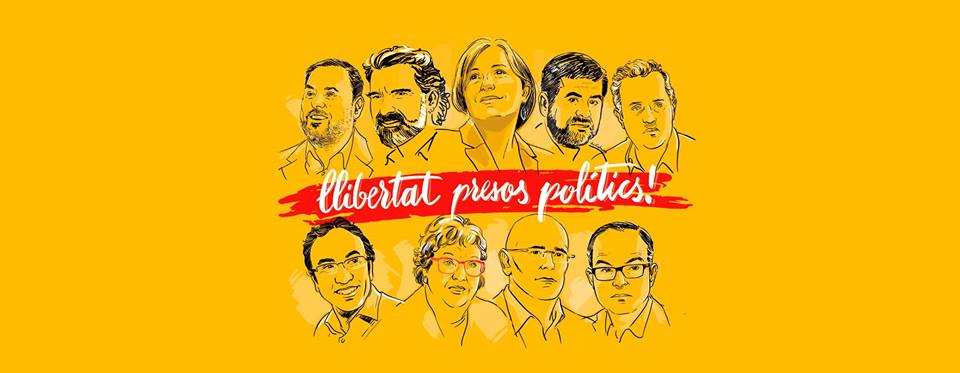Présidentielles 2012 : Jean Luc Mélenchon Front de Gauche
Jeudi 12 Avril 2012
Flamby Hollande ne fait pas le poids dans la presse internationale
They sang “The Internationale,” carried red flags and shouted “Resistance!” They booed whenever the word “rich” was pronounced, and they applauded when their leader, Jean-Luc Mélenchon, called the far right “professional racists” and the Socialist candidate “a pedal-boat captain.”
The crowd of more than 20,000 who gathered in Lille, close to the Belgian border, feel no nostalgia for the Soviet Union. They call themselves militants of the Front de Gauche (the Left Front), a coalition of the far left built on the remnants of France’s once-powerful Communist Party. Disappointed by the mainstream candidates and enthralled by the fierce and witty language of Mr. Mélenchon, they have been joined by many of the angry and jobless, young and old, who say they feel unprotected in the face of the economic crisis. And Mr. Mélenchon is now running third in many polls for the French presidential elections this month. With the first round of voting two weeks away, the far left is running just ahead of the far right of the National Front and its candidate, Marine Le Pen. Together, those on both wings of the French spectrum, who share strong criticism of globalization and the European Union, could take 30 percent or more of the vote in a race with 10 candidates, which would be more than either President Nicolas Sarkozy or the Socialist candidate, François Hollande, the two front-runners. And how the voters on the so-called fringe choose to cast their ballots in the second-round runoff on May 6 is likely to decide the race. Mr. Mélenchon, 60, a former teacher, Trotskyist and minister in a Socialist government, resplendent in his trademark red necktie, has been the surprise of this election so far, and he has been gathering some of the largest and most passionate crowds to his rallies, in Lille, Paris and most recently, Toulouse. He speaks of “civil insurrection,” raising the minimum wage 20 percent to $2,200 a month, confiscating all income above $470,000 a year and banning profitable companies from laying off any workers. “When there is no more liberty, civil insurrection becomes a sacred duty of the Republic,” he often declaims. “If the crisis were stronger here, as it is in Spain,” said Stéphane Courtois, a historian and expert on the Communists and the far left, “Mr. Mélenchon would now have 25 percent of the votes.” Mr. Mélenchon created the Parti de Gauche in 2008, then the Front de Gauche as a catchall of former Communists, Trotskyists, anti-capitalists, environmentalists and Socialist dissidents like himself, who feel the Socialist Party and Mr. Hollande are too centrist, consensual, establishmentarian and “soft.” Communists make up more than 80 percent of the members, but Mr. Mélenchon’s appeal has spread far beyond the card carriers to touch an angry, disappointed nerve in France that has also fed the National Front. He has been leaching support from Mr. Hollande, who has been running a timid campaign, and threatens to pull the Socialist candidate into second place in the first round, behind the unpopular Mr. Sarkozy. Mr. Mélenchon, a lover of philosophy and of the novels of William Faulkner, is a stirring, amusing speaker, capturing the attention of his audience through his erudition and his coruscating humor aimed at bosses and bankers. He has branded himself “the sound and the fury,” after Faulkner’s most famous novel, and plays on the edge of demagogy, his critics say, with no regard to how much his proposals could cost. “Once again, you will have to be the crater from which the new flame of revolution erupts,” he told his supporters in Toulouse, “lighting the fire of contagion that will become the common cause of the peoples of Europe.” “If Europe is a volcano,” he shouts, “France is the crater of all European revolutions!” He is a descendant of the 1968 student-worker riots in France who has moved through the Communist and Socialist parties before creating his own. He was the minister of vocational education from 2000 to 2002 under a Socialist prime minister, Lionel Jospin. In 2005, he strongly opposed a failed referendum on a European constitution, and three years later quit the Socialist Party and his senate seat. He remains a member of the European Parliament. He once confessed that he was bored in Brussels and dreamed of creating a French equivalent of the German Die Linke, a hard-left party rooted in the old East German Communist party. He has defended the Chinese repression over Tibet, admires Venezuela’s Hugo Chávez and has called the United States “the first problem of the world,” criticizing what he considers to be America’s malign military hegemony. Mr. Mélenchon hopes to turn his current support — and his vow to urge his supporters to vote for Mr. Hollande in the second round — into cabinet seats and policy changes. But he may also be undermining Mr. Hollande through his scathing criticism, while pushing some centrist voters into supporting Mr. Sarkozy, who is already warning that Mr. Hollande will be “a hostage to Mélenchon.” Mr. Mélenchon, many agree, aided by the economic crisis, has resurrected France’s once-powerful radical left, embracing the Communist Party’s revolutionary rhetoric and values, denouncing the rich, wage inequality, liberal economics and growing poverty. For many experts, his popularity also reflects the strong influence of the revolutionary myth over French politics. “In schools, universities and media, there is always a positive reference to communism,” said Mr. Courtois, the historian. “He has become our spokesman,” said Morgane Fovelle, 22, a student and member of the Mouvement Jeunes Communistes de France, the Young Communists Movement of France. “He is at ease, outspoken and doesn’t hide anything.” For young militants and communists, references to the Soviet Union, the crimes of Stalin and the cold war seem obsolete. “Most of our militants haven’t experienced the Stalin period; this historical burden is behind us,” said Pierre Laurent, the Communist Party’s general-secretary. “Our historical reference is the Popular Front, May ’68, and 1980, when the Communist Party was strong.” Since the end of the cold war, the Communist Party has experienced a steady decline, wining only 3.37 percent of the votes in the 2002 presidential election, and 1.93 percent in 2007. The party has also had severe money troubles, renting out parts of its imposing, famous Paris headquarters, designed by Oscar Niemeyer. But the party remains influential locally, with some 100,000 members serving as mayors, deputies, senators and local councilors. And the “Fête de L’Humanité,” a celebration sponsored by the Communist newspaper L’Humanité, now attracts around 600,000 people a year. Mr. Laurent, the party leader, said happily, “The color red is back in fashion.” The party’s revival began with an “anti-liberal awakening” in the referendum vote of 2005, a trend accelerated since 2008 by the economic crisis, he said. Every year since, he said, about 6,000 people, half under 35, have joined the party. “There is a momentum, a desire for change,” said Jean-Jacques Candelier, the Communist mayor of Bruille-lez-Marchiennes, a tiny city in northern France and a traditional bastion of the party. “For the past 15 years, I’ve been wondering: When are people going to wake up?” For Mr. Mélenchon, the awakening is now. “The Front de Gauche is in the process of becoming the people’s front,” he said in Lille. “Keep it in your mind for the rest of your life.” http://www.nytimes.com/2012/04/10/world/europe/in-french-elections-sound-and-fury-from-the-lefts-melenchon.html?_r=1&pagewanted=all |
Perspective COMMUNISTE
Perspective communiste

[Fr] Perspective communiste, blog francophone ayant pour vocation le partage d’informations nationales et internationales. De proposer des analyses marxistes de l’actualité et du débat d’idée. Ainsi que de parler de l’actualité du Parti Communiste Français et du Mouvement des Jeunes Communistes de France.
[Cat] Perspectiva comunista, bloc francòfon dedicat a compartir informació nacional i internacional. Oferir anàlisis marxistes d’actualitat i debat d’idees. A més de parlar de les notícies del Partit Comunista Francès i del Moviment de Joves Comunistes de França. [Esp] Perspectiva comunista, blog francófono dedicado a compartir información nacional e internacional. Ofrecer análisis marxistas de los asuntos actuales y el debate de ideas. Además de hablar sobre las noticias del Partido Comunista Francés y el Movimiento de Jóvenes Comunistas de Francia. [Eng] Communist perspective, French-speaking blog dedicated to sharing national and international informations. To offer Marxist analyzes of current affairs and the debate of ideas. As well as talking about the news of the French Communist Party and the Movement of Young Communists of France. [All] Kommunistische Perspektive, französischsprachiger Blog zum Austausch nationaler und internationaler Informationen. Marxistische Analysen der aktuellen Angelegenheiten und der Debatte über Ideen anbieten. Sowie über die Nachrichten der Kommunistischen Partei Frankreichs und die Bewegung der jungen Kommunisten Frankreichs. [RUS] Коммунистическая перспектива, франкоязычный блог, посвященный обмену национальной и международной информацией. Предложить марксистские анализы текущих дел и дебаты идей. А также говорить о новостях французской коммунистической партии и движения молодых коммунистов Франции.
Rubriques
|
||
|
Perspective communiste, blog ayant pour vocation le partage d’informations nationales et internationales. De proposer des analyses marxistes de l’actualité et du débat d’idée.
Ainsi que des fils d’actualité en on, comme en off, du PCF et du MJCF |
|||






































































